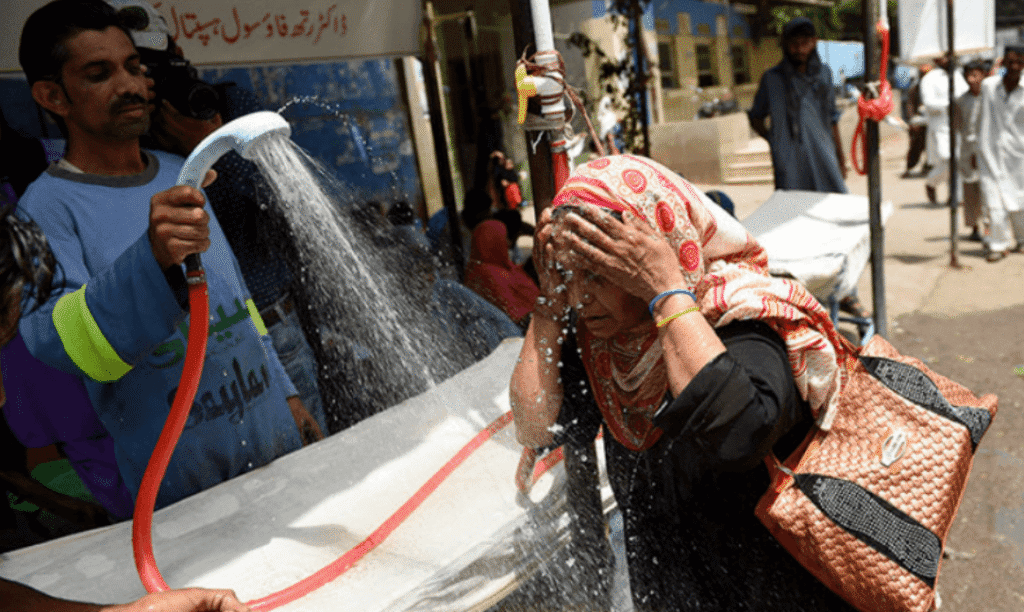Punjab is facing a sharp rise in heatstroke cases as a severe heatwave pushes temperatures well above normal, overwhelming hospitals in major cities including Lahore, Faisalabad, Rawalpindi, Gujranwala, Narowal, and parts of South Punjab. Health officials report a surge of patients—particularly elderly people, children, and daily commuters—flooding emergency and outpatient departments.
Experts are urging residents to avoid going outdoors during peak heat hours and to stay well hydrated with plenty of water and minerals. This heatwave is being called one of the harshest of the season, with Pakistan ranked among the countries most vulnerable to climate change impacts.
Provincial health authorities have issued warnings about the health dangers linked to the extreme temperatures. Hospitals in urban centers continue to admit new heatstroke cases daily, especially those who work outdoors or rely on motorcycles and public transport.
In response, the Punjab Health Department, following directives from the Provincial Disaster Management Authority, has placed hospitals on high alert. Special focus is on South Punjab, where Allama Iqbal Teaching Hospital in Dera Ghazi Khan has been designated a Provincial Stroke Management Centre, stocked with extra medical supplies and staffed with trained personnel.
Medical experts highlight the dangers of heatstroke, noting the risk of brain damage, particularly among vulnerable groups like seniors and children. The Pakistan Meteorological Department forecasts that the heatwave will continue for another two to three days, with temperatures soaring five to seven degrees Celsius above normal in central and upper Punjab, and four to six degrees above average in South Punjab.
